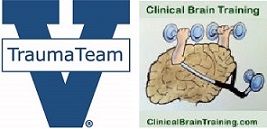So now that we’ve talked about the basic premise behind recognition primed decision making, lets go to step 2 – how do you train people when good decisions are based on experience?
If you don’t have experience, then you won’t have a database of cases and scenes in your head to compare to new situations and past plans to choose from to create new plans. If all you need is experience, why spend all the time learning fundamentals, biochemistry, flow dynamics, etc.?
First, in complex situations, you probably could be an adequate practitioner if you just went through 1,000 simulated or real life situations, critically looked at what went on, threw away the bad ideas and kept the good ones, and then moved forward. Unfortunately all your acumen would be based on previous situations and how they came out, you would not have the background to adapt to alterations in new situations, and it would be harder for you to remember what to do under pressure, without some fundamental knowledge of how things work. If you wanted me to be a fire ground commander, or you wanted a master sergeant in the army to be a surgical intern, you could probably accomplish both goals by giving both of us tons of situations, describing the presentations, going through the decisions, and what cues were used to make them, and then go over the action plans, what worked and what didn’t, and putting us both under and apprentice period of close observation. We both would probably not absolutely need the background knowledge, and we would be able to handle most simple situations, but we would have little capability to react to new situations. So our eventual competence would be limited by only what we’d been taught, and what we experienced personally.
So you need some background fundamental knowledge, and real cases, carefully presented and taught. But I believe a training program where you present 90% background scientific fundamentals and 10% demonstration of real life decision making is a lot less effective than 25% background and 75% real life cases, simulation, and apprenticeship.
So when you’re trying to teach new people, or trying to improve the performance of experienced people, it is ESSENTIAL that you focus on those aspects of the call, case, or fire that would have prompted you to move in a different direction than the other person did. Did you see something they didn’t see? Did you put more emphasis on one piece of data? Did they they not recognize the importance of a group of data? If you dont dissect out those issues, then they will not know where their mental model went wrong and they will just make the same mistake again.



 Subscribe in iTunes
Subscribe in iTunes